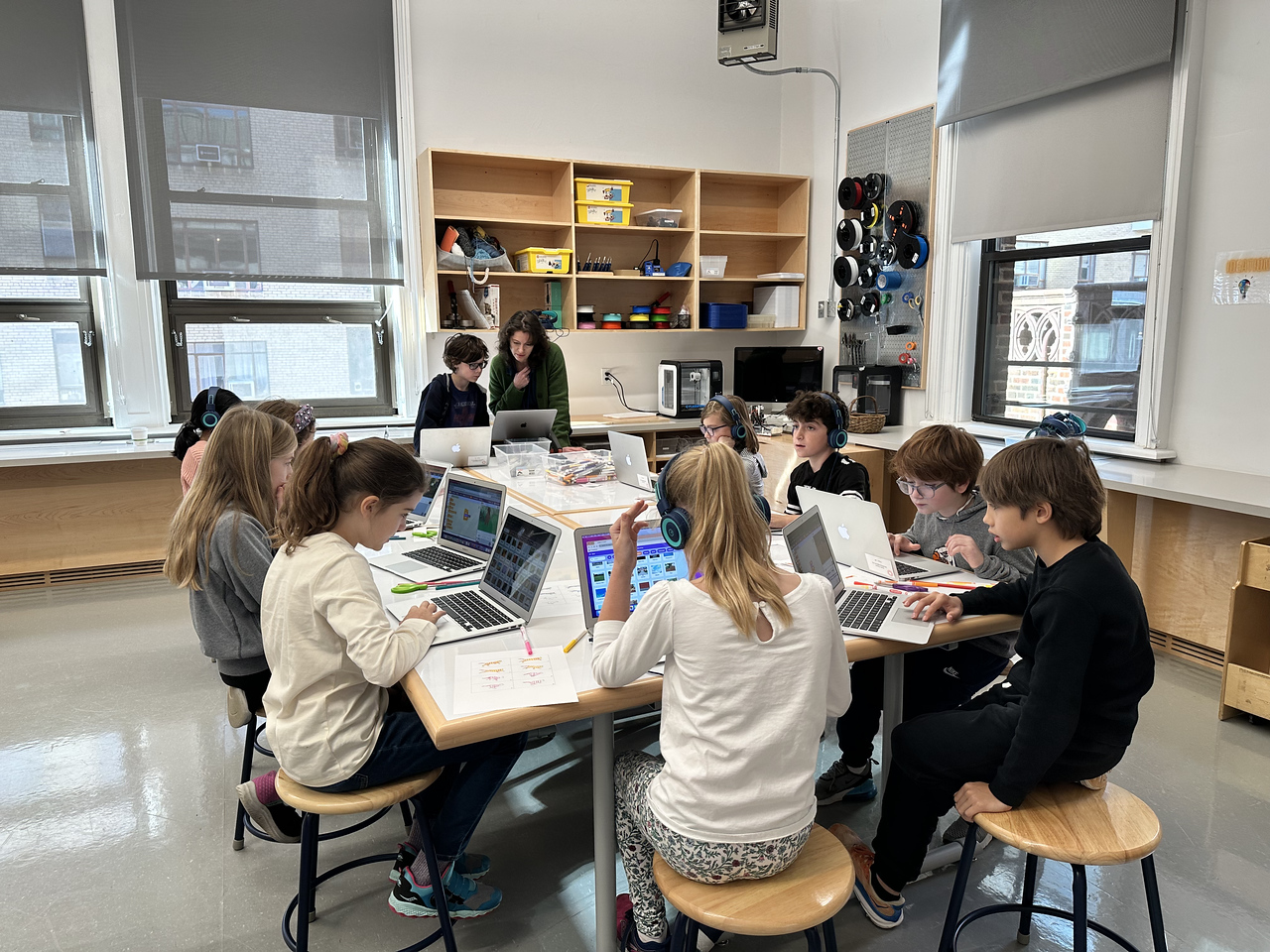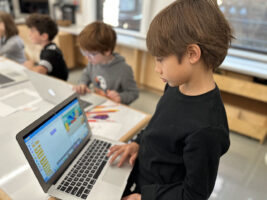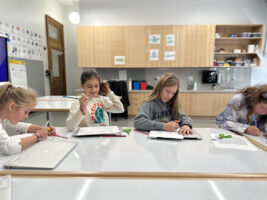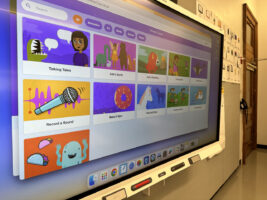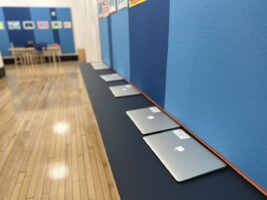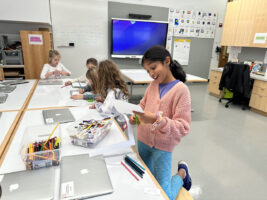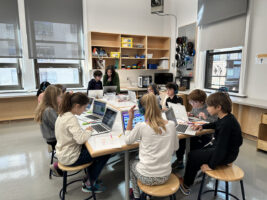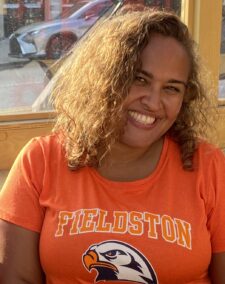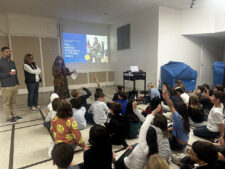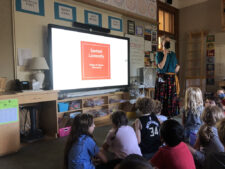At the Ethical Culture Fieldston School, we believe that students must be equipped with the right resources and tools to tackle present-day challenges. As our society continues to be empowered by some aspects of technology, the safe and ethical use of technology and online spaces continues to be of concern for all ages, especially with increased reliance on these tools in school.
Ethical Culture Principal Rob Cousins and the School’s dedicated administrative team and faculty are addressing this concern, prioritizing open dialogue with parents, guardians, and students. An innovative step in this direction was the creation of a “technology survey,” which was sent to all Ethical Culture parents/guardians last spring. The survey aimed to gauge family perspectives on technology — both its benefits and challenges — and included questions on monitoring the use of devices at home, providing personal devices such as phones or smart watches, and integrating the use of technology in school.
In an effort to bring this full circle and involve families new to Ethical Culture, Cousins shared the results of the technology survey at a recent parent/guardian Open Forum. Over 200 responses were collected from the survey, providing invaluable insight into the community’s sentiments.
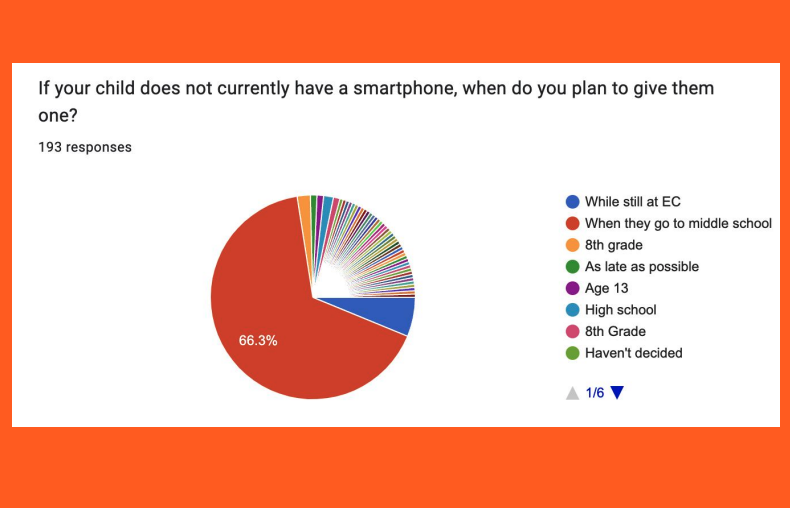
“The number of families who contributed to this survey is a testament to the community’s interest in this topic,” says Cousins. “Clearly, many families are concerned about their child’s use of technology, and I hope the survey will serve as a catalyst for further discussion amongst families.”
Bridging the gap between parent/guardian feedback and classroom instruction, the responses from the survey reinforced the urgency of the ongoing work to develop curricula centered on ethical technology use in the classroom. As students at Ethical grow older the topics get more mature and include deciphering real news versus fake news, the impact of social media channels, and more. These discussions in the classroom provide guidance while empowering students to use technology wisely.
Ethics and Technology Lead Alexis Caudle shared her perspective: “In the simplest terms, technology is a tool. Students see technology as a tool for communication, productivity, and recreation. Like other tools, one must learn how to use technology properly or risk causing harm. Because of the ubiquity of technology, it is important for students to learn how to use it properly.”
Caudle explained that teaching students about digital citizenship, or the responsible use of technology, is necessary to actively participate in today’s society. And there is, of course, a key foundational layer to this work: teaching about community. “Our students have to figure out who they are and how they fit into the community, how to care for themselves and others, how to empathize, and how to challenge injustice. Once they understand those concepts, we can teach them how the online community is an extension of reality and how their actions online can have real-world implications,” Caudle explains.
As early as Kindergarten, students are immersed in lessons about community. When they transition to 4th Grade and receive school-issued laptops, they are introduced to the Ethical Technology Use Policy (ETUP). This policy instills the gravity of being ethical online, from presenting oneself authentically and understanding the power of words to considering the environmental implications, like e-waste.
The learning doesn’t stop there. Throughout 4th and 5th Grades, students continuously engage in lessons on digital citizenship, troubleshooting tech issues, and using technology for practical purposes. When 4th Grade students learn the basics about their computers, they also learn about cyberbullying and being upstanders online. For the 5th Grade weather project in science class, students explore video editing techniques — including how to trim clips, add transitions, and add a green screen effect — mirroring real-world meteorologist weather forecasts.
Not to mention, students are encouraged to have fun when using technology. On a recent visit to Innovation Teacher Zoe Berger’s 4th Grade classroom, students were in the middle of a creative animation project.
“This week, we saw how still images come together to create an animation, first by creating flip books, and then by using costumes in a program called Scratch Coding,” explains Berger. “By adding ‘loop’ and ‘wait’ blocks students created animated scenes using code.” Students were sitting in pairs, experimenting together, and discussing solutions, all while displaying their technical skills in coding. Berger’s flip book project — which incorporated a healthy dose of both analog and computer work — emphasizes how technology can be used for good—to express creativity and spark innovation. This balanced but tech-forward approach aligns with Ethical Culture’s broader mission, informed by insights from the technology survey and a curriculum that underscores a range of technical skills while also promoting experiential learning and fun.
One click and one conversation at a time, Ethical Culture is empowering its students to be tech-savvy while sculpting both conscientious and responsible citizens ready to thrive in the ever-evolving and increasingly digital landscape of the 21st century.
